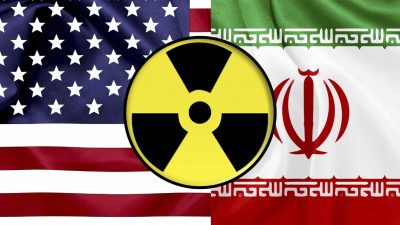“US Side-Channel” to China-Saudi-Iran Talks on Nuclear

All Global Research articles can be read in 51 languages by activating the Translate Website button below the author’s name.
To receive Global Research’s Daily Newsletter (selected articles), click here.
Click the share button above to email/forward this article to your friends and colleagues. Follow us on Instagram and Twitter and subscribe to our Telegram Channel. Feel free to repost and share widely Global Research articles.
***
Fox News reports that Biden still pursues the JCPOA with Iran. See this.
For quite some time, the JCPOA talks seem to have been dead. The possible reopening of the JCPOA talks at exactly this point in time is therefore both surprising and very interesting.
The nuclear issue and thus the JCPOA must have been part of the Saudi-Iran-China peace discussions. The reopening of US interest in the JCPOA hints that a US side-channel may have been opened prior to the China-Saudi-Iran agreement. Because prior to the reopening of diplomatic and trade relations between Saudi Arabia and Iran, Saudi Arabia will have insisted on a path to solve the issue of Iran’s nuclear program.
Either Saudi Arabia and Iran have agreed that both can pursue a nuclear program which potentially can lead to a nuclear device for both of them… OR… they agree on measures that they can both pursue a civilian nuclear program and make sure that it stays purely civilian. In the latter case of safeguarding purely civilian nuclear programs in both countries, the USA and not China can hold the keys. The USA with Iran, if they can agree on restarting the JCPOA agreement. And the USA with Saudi Arabia for guaranteeing the start of a purely civilian Saudi nuclear program.
Facts hint at the latter may be the case. First of all, right after the announcement of the Saudi-Iran agreement, it became known that the US had been held informed by Saudi Arabia during the whole process of talks. This points that the US may be a “silent partner” of the whole China-Saudi-Iran deal. It was also immediately made clear, that Saudi Arabia and the USA had been discussing the possibility of Saudi Arabia joining the “Abraham Peace Accords” with Israel in exchange for US acceptance (or even support) of a Saudi civilian nuclear program. And now we have the revelation in through Fox News that the US is still involved in talks to restart the JCPOA agreement with Iran. And for the JCPOA to restart, the EU, France, Germany, and the UK must have been kept on the side-lines by the US as well.
The possible existence of a US side-channel to the China-Saudi-Iran talks has potentially far reaching consequences. First of all, it would be a sign that some communication and even understanding can still be possible between the US and China at a time where US-China relations are moving closer to war.
Furthermore, it would hint that other agreements may have been made between Saudi-Arabia, Iran, China, Russia and the US and Israel in areas like Yemen, or perhaps even Lebanon and Syria. In the case of Syria, this would then hint at a regular circle of talks including Türkiye, Egypt, Jordan as well as the US with Qatar, Oman, and others. And in the case of Lebanon, France may have been informed as well, though not much, as it may be mostly a Saudi-Iran discussion facilitated by China. Indeed a major puzzle being put together.
With China in the center of talks with a dozen of countries in various configurations of circles. Some talking with some, but not with others. Some involved in some issues, but not in others. But China at the center.
*
Note to readers: Please click the share button above. Follow us on Instagram and Twitter and subscribe to our Telegram Channel. Feel free to repost and share widely Global Research articles.
Karsten Riise is a Master of Science (Econ) from Copenhagen Business School and has a university degree in Spanish Culture and Languages from Copenhagen University. He is the former Senior Vice President Chief Financial Officer (CFO) of Mercedes-Benz in Denmark and Sweden.
He is a regular contributor to Global Research.

